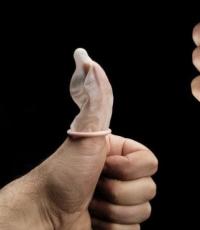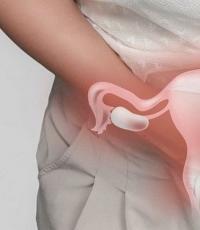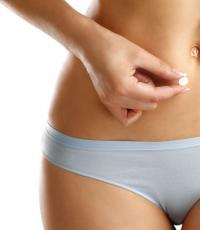Diet for Helicobacter pylori infection. Diet and nutrition in the treatment of Helicobacter pylori in the stomach. What not to eat with high stomach acid
Diseases affecting the gastrointestinal tract are a real problem in the modern world, since the transience of the pace of life often makes it impossible to eat normally, regularly and exclusively with homemade dishes. Snacking on the go, dry food, fast food are some of the causes of diseases affecting the gastrointestinal tract. But along with them, a rather dangerous factor that provokes problems with the stomach is also Helicobacter pylori - due to its negative influence, the patient develops Helicobacter pylori.
According to doctors, the activity of this bacterium provokes and leads to the development of diseases such as gastritis and gastric and duodenal ulcers, up to the development of a precancerous condition and malignant neoplasms. The treatment of this problem is very long and difficult, when, in addition to the drug course, doctors prescribe a special, dietary food for Helicobacter pylori. It is about what the diet should be in the treatment of Helicobacter pylori and will be discussed further.
What is the need for a diet and its principles

The process of treating gastrointestinal problems provoked by the action of Helicobacter pylori is very time-consuming and rather complicated, both for the doctor himself and for the patient. It is worth approaching it comprehensively - in addition to the medical course of treatment, the use of folk remedies, it is recommended to adjust your own lifestyle and diet. It is the diet for Helicobacter pylori that is an important, even obligatory component of the effective and efficient treatment of problems and diseases of the gastrointestinal tract.
The diet for Helicobacter pylori gastritis and ulcerative lesions in the first place should be not only fractional - we eat little and often, but also sparing. Only a doctor prescribes a diet and diet, taking into account the results of the examination and examination of the patient, the course of his illness and its stage.

- Fried and fatty foods, smoking and pickling are not recommended, food with a lot of spices that can irritate the stomach.
- The diet should consist of fresh foods, steamed or boiled, which will be served on the table in a grated form. And there is worth all the dishes in a warm form - not hot or cold.
- All meals should be chewed thoroughly.- do not rush and swallow food in pieces, and you should drink at least 2 liters of water per day.
- It is worth observing the principle of fractional nutrition- We eat often, but in small portions, with an interval between meals of 3 hours.
- It is recommended to follow the diet for at least 1.5-2 months, at the same time, after eating, the patient should have a slight feeling of hunger and not have a feeling of heaviness in the stomach.
All problems with the gastrointestinal tract provoked by Helicobacter pylori are common pathological changes. And in this case, the diet will increase the effectiveness of the course of treatment necessary for the healing process itself to pass quickly, without giving complications.
What is allowed and forbidden to eat when diagnosing a pathology

With regard to permitted products, if the stomach is affected by this bacterium, the patient is shown to eat exclusively white, not just baked, fresh, but slightly dried up, yesterday's bread, soft-boiled eggs and light soups. Also shown are dairy products, lean meats, offal - liver or lungs, and fish, vegetables such as carrots and potatoes, beets and zucchini, cereals.
On the issue of prohibited foods when diagnosing a patient with helicobacteriosis, then in this case it is worth excluding everything and everything that mechanically irritates and damages the mucous membrane of the walls of the stomach or duodenum. In this case, doctors categorically prohibit:
- fried and fatty meat and fish dishes;
- mushroom dishes and pickles, jet food and condiments;
- sausages and especially smoked products in this category;
- any preservation - meat or fish products;
- baking and pastries, including black, fresh bread;
- alcohol, beer and carbonated, smoked or processed cheese;
- vegetables such as radishes and sorrel, legumes and asparagus, fruits with skins such as grapes and dates, peach.

In the process of formulating dietary nutrition, It is worth considering the level of acidity of gastric juice. At a lower level, dairy products should be introduced only with a low percentage of fat or fat-free, it is not recommended to introduce cabbage into the first and second courses, and the second courses are steamed or served boiled. To increase the level of acidity, it is recommended to cook rich broths and soups, pickled vegetables cooked with vinegar and spices.
If we are talking about the increased acidity of gastric juice - vegetables such as onions and cucumbers, sorrel, soups are recommended to be served not rich, but any broth should be completely excluded. Such cereals as pearl barley and barley are forbidden, it is not recommended to eat hard-boiled eggs, sour varieties of berries and fruits.

Diet for the day - sample menu

The therapeutic diet for Helicobacter pylori menu provides for building on the principle of fractional nutrition - 6 meals a day and small portions, no more than 250-300 ml. So in the morning you can serve one soft-boiled egg with a piece of white, dried, yesterday's bread and a glass of berry jelly for breakfast. In the next meal - boiled, lean veal, garnish - porridge, tea with honey. For the 3rd meal - okroshka or boiled or grilled fish, with a side dish of potatoes, dried fruit compote.
For the 4th meal, it is recommended to cook - a glass of yogurt and a fruit of your choice, for the 5th - grated fruit jelly and a handful of dried apricots, jelly. For dinner - boiled lean meat, a side dish of pasta, some bread and fresh fruit salad, a glass of low-fat milk.
If the pathology itself is not complicated, does not have concomitant pathological abnormalities and diseases, the diet will not be insipid and tasteless, it will not bring discomfort. And you should not think that a strict diet is boring and tasteless, when eating with Helicobacter pylori can also please real gourmets.
The life rhythm of a modern person does not allow to eat in a timely manner or consume only healthy food. This creates suitable conditions for the development of gastrointestinal diseases. The most dangerous is the penetration into the stomach of Helicobacter Pylori, which causes the disease Helicobacteriosis. Medical statistics show that almost 68% of the population is infected with the infection. The treatment of this disease is long, difficult, and includes medical therapy, folk advice, diet, and dietary adjustments.
Find out in more detail and why this bacterium is so dangerous to humans!
Why is a diet necessary?
The activity of the microorganism Helicobacter causes inflammation in the gastric mucosa. If you eat food that irritates her, the cure will not be effective, and the patient's well-being will worsen.
Diet for Helicobacter pylori, the diet of which is an indispensable condition at all stages of the treatment course of the disease.
Diet Basics
The diet depends on the condition of the patient and the personal functional characteristics of the organism. However, some basic rules must be followed:
- remove from the diet components that irritate the gastric mucosa, as well as sweets that the bacterium loves very much;
- chew food thoroughly, eat slowly;
- drink fluids at least 2 liters per day;
- frequent meals (at least 5-6 times a day), so that the portion is not large, use small plates;
- observe a sparing diet for at least a month;
- meals are served warm. Hot and cold foods are prohibited!
- Food is prepared in pureed form;
- after eating, the patient does not have a feeling of satiety, heaviness, bloating. If such sensations are present, the portion is reduced.
By following the rules of proper nutrition, the effectiveness of the medicinal effect on Helicobacter pylori is enhanced, and the recovery period is reduced.

Allowed and prohibited products
With helicobacteriosis, you need to abandon the following products:
- fatty meats and fish
- animal fat
- any mushrooms
- spicy, salty foods
- sausages, especially smoked
- canned food
- pastry, ice cream, black bread
- alcoholic, carbonated drinks
- radish, legumes, asparagus
- smoked and melted cheese
- exclude fruits with a dense skin: grapes, peach, cherry.
What foods are allowed to be included in the diet:
- chicken or quail eggs, only boiled
- first courses cooked in low-fat meat broth, vegetable soups, as well as milk-based soups
- milk, kefir, yogurt
- non-fatty meats (poultry, rabbit), fish
- vegetables: carrots, potatoes, zucchini, pumpkin. They are stewed, baked, boiled;
- It is advised to add broccoli dishes to the menu, which contains a lot of sulforaphane. This organic compound goes well with different;
- vegetable oil
- non-acidic juices made from berries
- cereals, pasta (small vermicelli)
- berries: strawberries, raspberries, strawberries.
Using these products, any person will feel an improvement in overall well-being, relief at the time of exacerbation of digestive problems.

Features of nutrition with related problems
Difficulties with digestion, which contributed to the penetration of the bacterium Helicobacter pylori, make some restrictions on the menu. With a reduced concentration of hydrochloric acid in gastric juice, it is allowed to consume dairy products with low fat content. It is advisable to drink koumiss. Vegetable broth with cabbage is excluded, and main dishes are cooked in a double boiler.
What can not be eaten with increased acidity of the stomach?
- Cucumbers, sorrel
- broths on fish, meat, mushrooms
- millet, barley porridge
- dairy
- hard-boiled egg
- berries and fruits of sour varieties
If there are ulcers in the stomach or the beginning of the small intestine, a strict diet is recommended. The first courses are eaten mashed, vegetable or dairy, meat, fish are steamed. It is allowed to use whole milk, cream, low-fat cottage cheese, not sour sour cream. In the stage of increasing painful symptoms and worsening the general condition, bread, side dishes, and vegetable dishes are excluded.
Sample menu during illness
To have an idea of what diet should be for Helicobacter pylori, here is an example of a one-day menu, which consists of several meals:
- 1 meal: 1-2 boiled eggs or steam scrambled eggs, a slice of dried white bread, green tea or non-sour fruit jelly;
- snack: fresh cottage cheese, not sour, rosehip broth;
- Lunch: vegetarian puree soup with potatoes, boiled carrots, boiled or baked meat with bechamel sauce, dried apple compote;
- Snack: fruit jelly or medium banana, compote, 2 soft dried apricots;
- Dinner: steamed cutlet, buckwheat porridge, fruit salad, tea with honey;
- A glass of milk before bed.

Diet result
The diet prescribed in the treatment of Helicobacter pylari will improve the health of the patient in a short period. The stomach will digest food better, heaviness will be eliminated, pain sensations, bloating will disappear. But, it is still important to know in order to prevent the next appearance of bacteria in the future.
Drug therapy, proper nutrition give positive results, the patient recovers faster.
If there were extra pounds, if these requirements are met, the excess weight is lost. A person gets used to a healthy lifestyle.
Probably, from the very appearance on earth, bacteria coexist with a person in his body. Meanwhile, at the slightest weakening of the immune system, there comes a moment when the number of bacteria increases, undermining the health of their carrier. Among them is Helicobacter pylori. This pathogen is different in that with an increased amount of it, such dangerous diseases as stomach ulcers, bulbitis and many others can develop. This bacterium can seriously poison the life of its owner. That is why it is necessary to know what kind of diet you need to follow so that diseases do not overcome a person.
Patients who have any diseases of the stomach are well aware of all those unpleasant symptoms that usually appear at the most inopportune moment: heartburn, nausea, vomiting, pain. The acute stage of a particular disease becomes chronic, but one has only to eat something inappropriate, and the symptoms again remind of themselves.
As practice shows, in the presence of these bacteria in a critical amount, the most important place is given to the diet. You need to know and understand what you can eat and what you should refrain from.
Include in your diet:
Dairy products. It is best that they are low-fat, as heavy and high-calorie foods are poorly absorbed by the stomach and inhibit the treatment of the disease. Cottage cheese, yogurt, kefir - all this should be on the table of a patient who has problems with Helicobacter pylori.
Pureed soups and cereals. Usually, such nutrition helps to improve the condition of the mucosa. Porridges are rich in easily digestible carbohydrates and gently envelop the walls of the stomach. As for slimy soups, they also promote rapid satiety, improve overall health and cure many diseases.

Fruit decoctions, jelly. The viscous properties of jelly make this drink truly indispensable if your body has an increased amount of Helicobacter pylori. Dried fruit compotes have high vitamin qualities and saturate every cell of the body with useful substances, so add them to your diet.
Steamed dishes. In order for the treatment of gastrointestinal diseases to be effective, it is important to eat foods that do not irritate the stomach. Lean meats, fish and poultry are highly digestible when cooked without the addition of oil and fat. Replace fried cutlets with meatballs, and fatty fillets with boiled or stewed fish.
Boiled eggs. Since this product is rich in proteins, it is advisable to include it in the menu. However, it is worth remembering that in the presence of a large number of bacteria in the body, boiled eggs will bring much more benefit than fried ones, so try not to use a frying pan.
Half-baked bread. Fresh pastries are unacceptable for diseases caused by Helicobacter pylori, so give up buns and muffins. Eat only dry bread or soaked crackers that will not be harmful to the stomach, especially during treatment.
Water without gas. Drinking sweet carbonated drinks is not healthy even for a healthy body, so if you suffer from gastrointestinal diseases, your main assistant is clean water, and you need to drink at least 1.5 liters of it per day. A liquid containing alkalis is also acceptable.
Video “Helicobacter pylori”
What is not allowed
If the patient is engaged in the treatment of diseases of the gastrointestinal tract, then he needs to limit the use of certain dishes. This list contains exactly those foods that you should not eat if you have Helicobacter pylori:
Fat meat. To digest heavy food, the stomach needs more enzymes and hydrochloric acid, which, in turn, can affect the mucous membrane, destroying it and leading to an ulcer. Therefore, it is advisable to exclude these products and follow a diet.
Mushrooms. Despite the obvious benefits, this ingredient should not be consumed if you are treating the stomach. Mushrooms are a heavy product that requires a lot of effort from the digestive tract to digest it. As with fatty meats, it can lead to increased stomach acid production and mucosal breakdown. Cross them out of your diet!
Salted and smoked foods. In case of stomach diseases, all seasonings and pickles must be completely excluded, since the components contained in them act irritatingly on the mucous membrane. Refuse even the most delicious, but harmful sausage, if you are treating the gastrointestinal tract.

Sour fruits. A stomach affected by bacteria can also be extremely negatively affected by fruits that contain acid. Already sick, the mucosa begins to break down rapidly under the influence of such fruits, causing serious consequences.
Muffin. It is advisable not to eat this tasty, but completely unhealthy product at all for a person who is on a diet, since in addition to calories, muffin contains a lot of substances that negatively affect the stomach. Therefore, if you have Helicobacter pylori, stop eating cakes, sweet buns and air cakes.
Alcohol, soda. Drinking alcoholic beverages is extremely harmful to the stomach affected by bacteria, since the ingredients contained in such a liquid negatively affect the functioning of the gastrointestinal tract.
Carbonated water also has irritating effects, especially sweet water, since it also contains dyes and chemicals that are not allowed for a stomach affected by a disease.

Ice cream. A patient with Helicobacter pylori is contraindicated in the use of cold and hot dishes. Since ice cream is not only below the required temperature, but also fatty, a person with an increased content of bacteria in the stomach should avoid this treat.
sample menu
Having dealt with harmful and healthy foods, we will try to make an approximate diet for patients with an increased content of bacteria in the stomach.
On the first day, meals can be as follows:
- breakfast: boiled egg, some bread, fruit jelly;
- second breakfast: boiled veal or chicken, buckwheat porridge, some bread, tea without sugar;
- lunch: vegetable soup (as an option, okroshka on low-fat kefir), a little boiled fish with potatoes;
- afternoon snack: low-fat yogurt, butter sandwich;
- dinner: 250 gr. stewed cabbage with a piece of lean meat or poultry, fruit soufflé-100 gr. Tea or warm milk is possible.

On the second day, the menu of a person with a high content of Helicobacter pylori may be as follows:
- breakfast: jelly or fruit jelly-100 gr.;
- second breakfast: boiled rice porridge with a steam cutlet -100 gr., some bread;
- lunch: milk soup, steamed cutlet or boiled meat with mashed potatoes;
- baked pear or apple is allowed - 1 pc;
- afternoon snack: dried apricots - 5 pieces, fruit jelly - 100 gr;
- dinner: rice porridge - 150 gr., a little stewed fish or poultry, a slice of bread and warm milk.
Between meals, try not to make too large intervals, and also do not forget to drink water. Treatment of Helicobacter pylori is not an easy task, but necessary, so be patient and follow all the recommendations that the doctor will give you. Eat right, take care of your health and be full of life!
Video “Diet for stomach ulcers”
In the video, you will learn how to properly follow a diet and rational nutrition for Helicobacter pylori disease in order to achieve a speedy recovery.
The therapeutic diet for Helicobacter pylori is aimed at accelerating the regeneration processes in the stomach, which are often disturbed in the presence of this bacterium. Such a pathogenic microorganism causes a number of negative processes in the gastrointestinal tract. Often under its influence there is a stomach ulcer, erosion and chronic gastritis. The most dangerous consequence that the Helicobacter pylori bacterium can entail is, as a result of which cancer develops.
Such a bacterium manifests its active vital activity in the acidic environment of the stomach and releases special substances that damage the walls of the organ. An inflammatory process begins, accompanied by characteristic symptoms. Helicobacter pylori provokes heartburn, pain and spasms.
To get rid of such trouble, an integrated approach is required. It is not always possible to quickly destroy the pathogen, as it develops resistance to antibiotics. However, if you combine drug therapy and dietary nutrition, you can achieve good results. First of all, you need to know what can be included in the menu, and what is better to refuse for the duration of therapy.
1 Basic principles
When treating Helicobacter pylori, all products that increase the negative effect of the bacterium on the gastric mucosa should be excluded. First of all, you should abandon carbonated drinks, which have an aggressive effect on the digestive tract. It is necessary to reduce the consumption of coffee and strong tea, to exclude too concentrated and acidic juices. Kissel, green tea and peach nectar are not forbidden. You can also drink milk, kefir, ryazhenka and bifidok.
Helicobacter pylori diet provides for the exclusion of certain types of products. First of all, it is recommended to abandon any seasonings, especially those that are too salty and spicy. Particularly harmful is the food additive monosodium glutamate, which can enhance the secretion of gastric juice. It is impossible to use chips, salty crackers and fish for beer during treatment, as well as various semi-finished products: sausage, dumplings, instant pancakes and french fries.
Alcohol is strictly prohibited. Destructive properties for the digestive tract have champagne, beer and carbonated cocktails. Strong alcoholic drinks are also included in the group of prohibited products. In addition, it is not recommended to eat everything fried and fatty. This can only aggravate the symptoms. All food should be cooked with a minimum amount of oil. In addition, food should be stewed, boiled, steamed, but not fried.
2 Important nuances
For the preparation of first courses, there are some nuances. It is advisable to use only natural ingredients, not concentrates. It is not recommended to add fried carrots and onions to soups and cabbage soup. Fatty meats should be avoided. Beef and pork are banned. It is best to use chicken or turkey.
Steamed chicken and fish cutlets with rice are allowed. The menu should include all cereals cooked both in milk and in water. Hercules is especially useful, which has a mild enveloping effect on the gastrointestinal tract.
For the duration of treatment, it is better to exclude all salads from fresh vegetables, since most of them have an aggressive effect on an irritated stomach. However, plant foods can be consumed in a stew. It should be cooked from vegetables stew. It is better to give preference to potatoes, zucchini, carrots, cauliflower. It is necessary to limit the consumption of mushrooms, eggplant, tomatoes and radishes.
As for additional recommendations, here we should dwell in more detail on the use of fruits. Citrus fruits, apples, grapes and sour varieties of berries should be completely excluded. You can use jam, as well as sweet fruits. It's good to snack on bananas. They have a useful property and are able to have an astringent effect. Apple lovers can not refuse the fruit, but simply pre-bake it. In this way, all harmful and irritating acids are neutralized.

It is good to use pasta, buckwheat, rice, pearl barley and oats as a side dish. Sauces based on tomatoes and mayonnaise should be abandoned. Instead, you can use sour cream. Under the strictest ban, fresh onions and garlic. You can use natural yogurt, preferably not too acidic.
While following a therapeutic diet, it is recommended to eat cottage cheese with sour cream for breakfast. Sandwiches with butter and cheese are allowed. In this case, it is better to use whole grain or dried bread in the oven. The use of yeast and confectionery products should be avoided. Baking increases the production of hydrochloric acid, resulting in an increase in unpleasant symptoms.
Prohibited foods include cakes and pastries. Ice cream is also recommended to be excluded. And in general, you need to eat only warm food. Cold or hot drinks and foods should be removed from the diet.
For breakfast, it is recommended to eat a few boiled eggs or cook a steam omelet. Eggs are banned. Curd casserole, which can be supplemented with raisins, is not contraindicated. Lunch should always be the first course. It is best to cook vegetarian borscht and soups.
The menu can include lean and oatmeal cookies. However, it is not recommended to eat it dry, but it is best to drink jelly or kefir. Almost all fish is allowed only in boiled form. When improved, it can be baked, but only in foil or a sleeve without adding oil. At the same time, vegetables can be added to the fish.
The daily diet should include breakfast, lunch, afternoon tea and dinner. An hour before bedtime, you can drink a glass of milk or yogurt. Dinner should be carried out at least 2 hours before bedtime. This is necessary in order to avoid fermentation processes in the stomach and intestines.
Chocolate for the duration of treatment should be replaced with jam or sweet jam.
According to recent data, the Helicobacter pylori bacterium is the main cause of many diseases of the stomach and duodenum. Penetrating into the mucous membrane and being absolutely protected from the influence of hydrochloric acid of the stomach, this microorganism forms entire colonies. An inflammatory process develops, the epithelial layer is destroyed, erosions and deep ulcers form, with a prolonged course of infection, malignancy (malignancy) of tissues begins. As a result, a person begins to complain of pain, heartburn, nausea, receives a referral for examination, and in most cases he is diagnosed with gastritis or peptic ulcer of bacterial origin.
Identification of the pathogen during the examination is an indication for the appointment of antibiotic therapy. But the decision to start eradication (destruction of a microorganism) is always made individually. The severity of the clinical picture, age, state of immunity, concomitant chronic diseases are taken into account.
But there is another method of therapy that can be used, regardless of any restrictions, and which always brings only benefit. This is the observance of the correct diet when infected with Helicobacter pylori. Helicobacter sufferers need to understand what they can eat and what not. Considering that the main pathologies they cause are gastritis and peptic ulcer of the stomach and duodenum, the diet for Helicobacter infection has the same rules as for these diseases.
 Strict adherence to the principles of treatment with a diet can slow down the pathogenic effect of the pathogen for a long time. Providing a soft and gentle effect on the mucous membrane through properly prepared meals and diet has a strengthening effect on the epithelium. The exclusion of "harmful" foods and the use of "useful" not only does not irritate the stomach, but leads to increased regeneration of the mucous membrane, helps it recover and fight Helicobacter pylori.
Strict adherence to the principles of treatment with a diet can slow down the pathogenic effect of the pathogen for a long time. Providing a soft and gentle effect on the mucous membrane through properly prepared meals and diet has a strengthening effect on the epithelium. The exclusion of "harmful" foods and the use of "useful" not only does not irritate the stomach, but leads to increased regeneration of the mucous membrane, helps it recover and fight Helicobacter pylori.
Diet principles
There are only three main principles of the diet. This is a mechanical, thermal and chemical sparing of the gastric mucosa.
Sparing (from spare) - in medicine, the principles of therapeutic or dietary nutrition that help reduce the irritating effect of food on the gastrointestinal tract.
Based on them, we can distinguish the main rules:
- food should be fractional, that is, in small portions 5-6 times a day;
- dishes should not be too hot or cold;
- dishes should not contain large and hard pieces;
- cooking methods are boiling, baking without a crust or “steamed”;
- stomach acidity should be taken into account;
- daily calorie intake - 2500-3000.
 It is necessary to exclude from the diet all fried, smoked, pickled, salty, fatty. Cabbage (except for mashed broccoli), mushrooms, cucumbers is not recommended. You can not drink coffee, strong tea, carbonated drinks, all legumes. Fresh fruits and vegetables are welcome, but in small quantities, it is better to bake them. The choice of dairy products is carried out depending on the acidity: with increased acidity, you can not use sour-milk products, with reduced acidity, you can. It is better to refuse freshly baked bread and use dried.
It is necessary to exclude from the diet all fried, smoked, pickled, salty, fatty. Cabbage (except for mashed broccoli), mushrooms, cucumbers is not recommended. You can not drink coffee, strong tea, carbonated drinks, all legumes. Fresh fruits and vegetables are welcome, but in small quantities, it is better to bake them. The choice of dairy products is carried out depending on the acidity: with increased acidity, you can not use sour-milk products, with reduced acidity, you can. It is better to refuse freshly baked bread and use dried.
Menu example
By eliminating “harmful” foods from the diet, from the remaining ones you can cook full-fledged and tasty meals every day. Here is one example menu:
- first breakfast: a bowl of oatmeal, tea;
- second breakfast: 2 soft-boiled eggs, tea;
- lunch: fish soup, mashed potatoes with a steamed meat cutlet, dried bread, compote;
- afternoon snack: cottage cheese casserole with berry syrup, a glass of milk;
- boiled buckwheat with a piece of baked meat, tea.
Therapeutic diet is a powerful weapon in the fight against diseases. But the main condition for success is compliance with all its rules and constant medical supervision.




